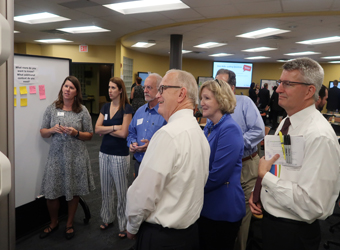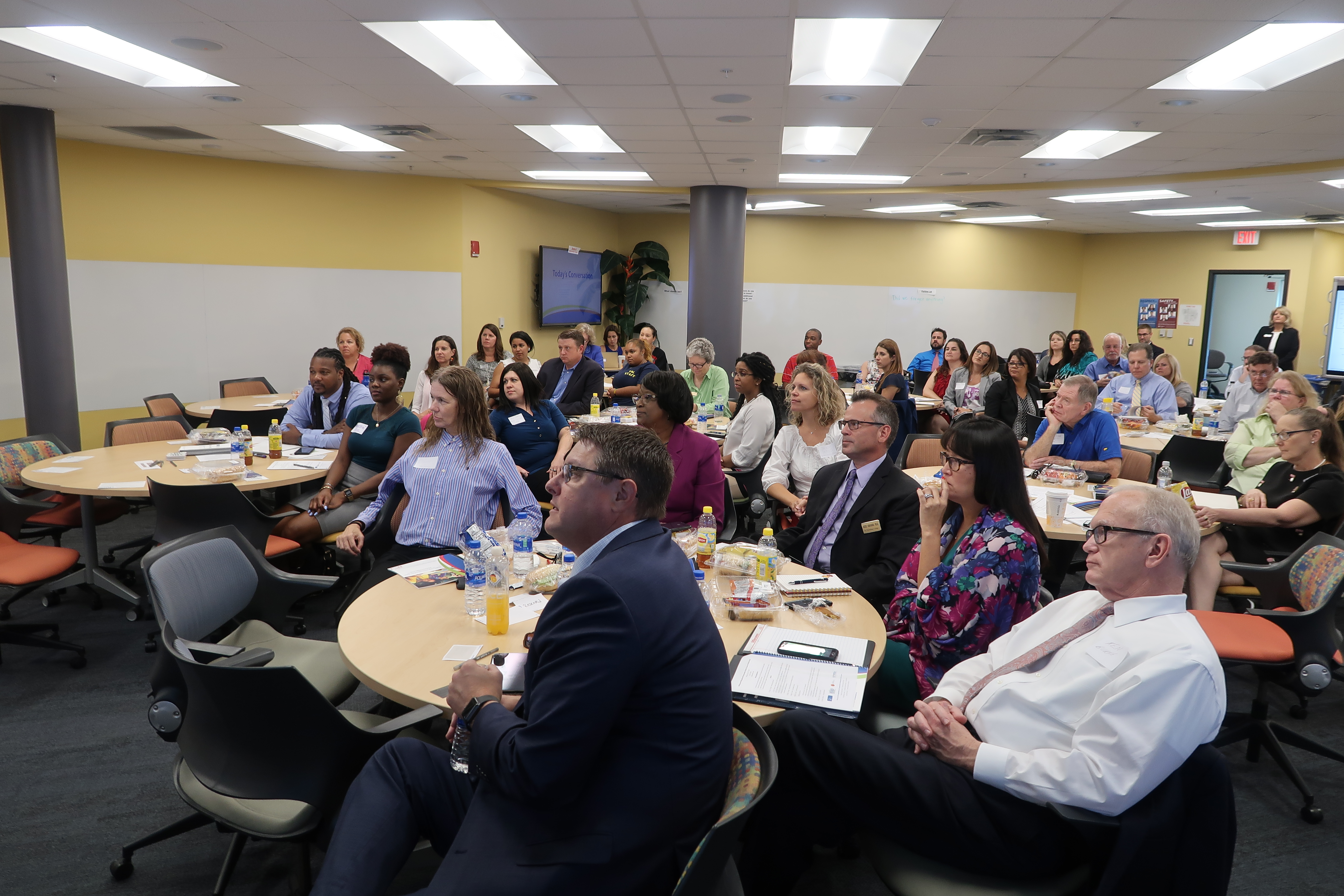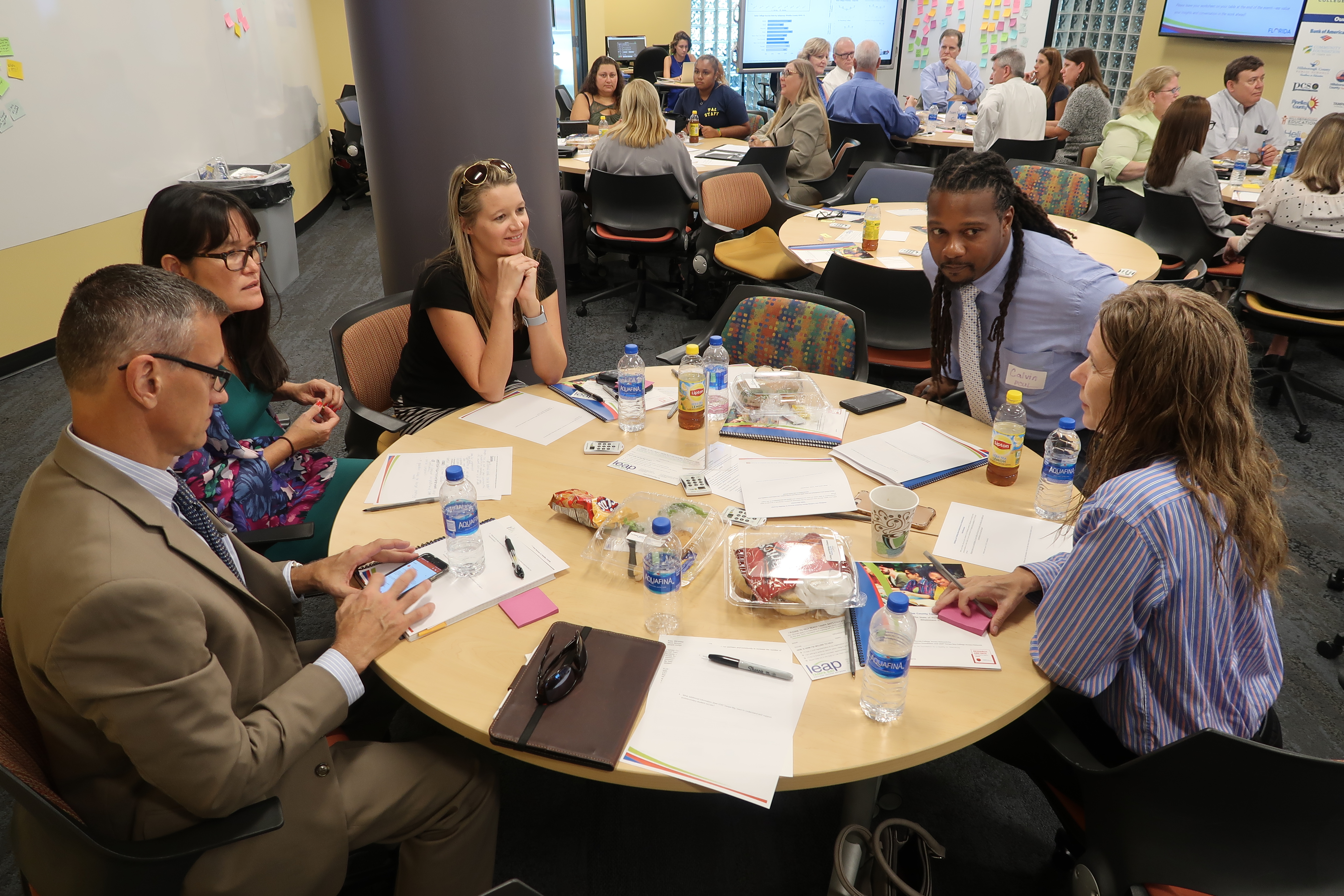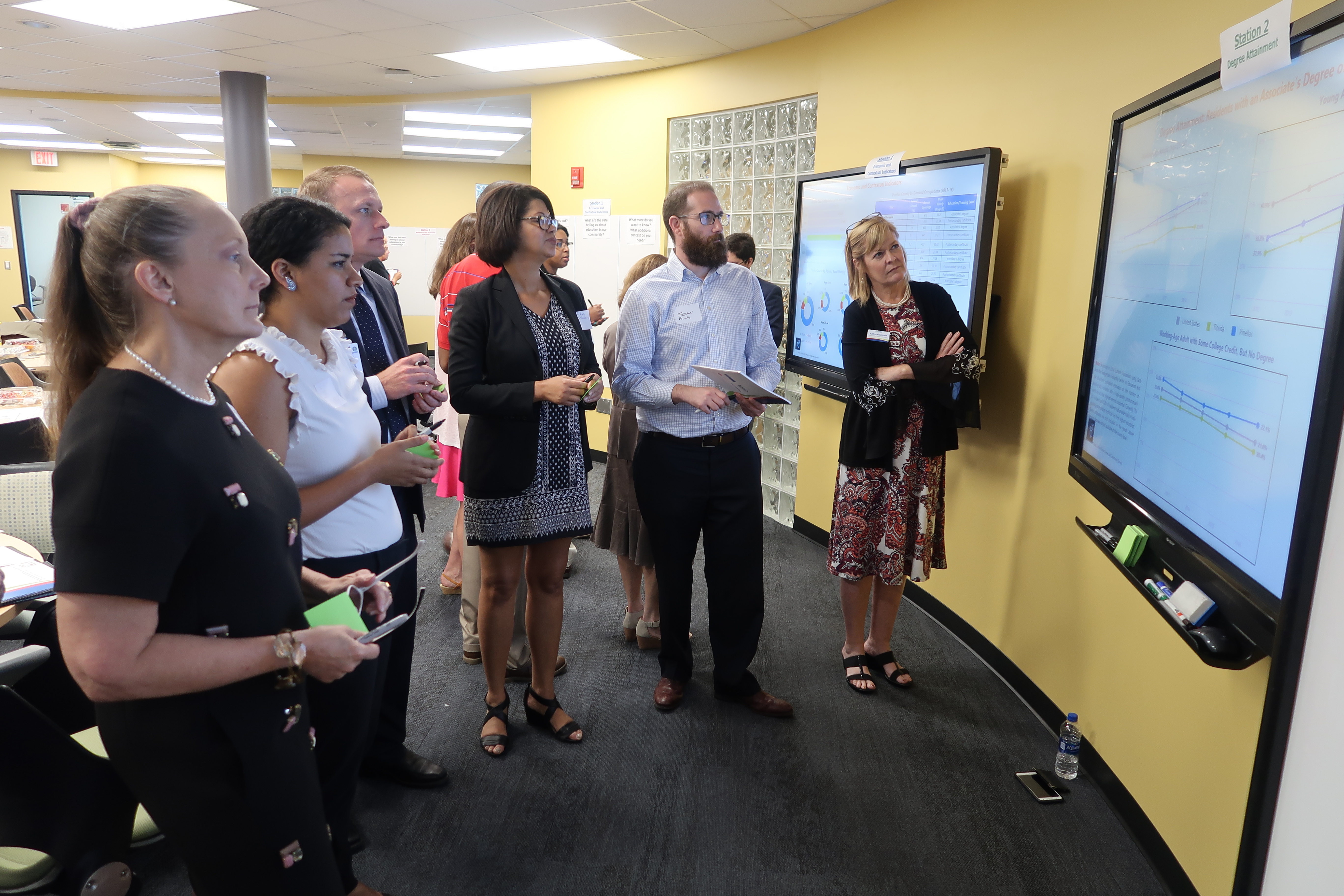 Recently, LEAP Tampa Bay College Access Network hosted a Data Walk that captured the community’s voice to inform the work of improving student outcomes.
Recently, LEAP Tampa Bay College Access Network hosted a Data Walk that captured the community’s voice to inform the work of improving student outcomes.
LEAP Tampa Bay helps traditional and non-traditional students complete a degree or workforce credential through its network of community partners from education, non-profit, business, and government organizations across Hillsborough and Pinellas counties.
On July 16, the local college access network (LCAN) unveiled the Pinellas County Community Indicator Report, which was produced by FCAN for LEAP with input from multiple community stakeholders, including Pinellas County Schools, Pinellas Technical College, St. Petersburg College, University of South Florida — St. Petersburg, Future Plans USA, and Helios Education Foundation.
The report, which was commissioned by the Pinellas Education Foundation with support from the Foundation for a Healthy St. Petersburg, outlines the state of educational achievement in Pinellas County while identifying ways the community can support improvements to critical outcomes that impact the region’s talent pipeline.
In April, the LCAN — which was originally established as LEAP Hillsborough College Access Network in 2016 — officially joined forces with Pinellas County and was re-imagined as LEAP Tampa Bay.
“The two counties have differences on various measures and in different demographic areas, so we wanted to ask ourselves, ‘How can we help ourselves recognize and appreciate the similarities and the differences as we move forward together?’” said Chuck Tiernan, director of LEAP.

Chuck Tiernan, Director of LEAP Tampa Bay College Access Network

The Data Walk attracted over 60 community members, including business leaders, students, higher ed luminaries and more
The release of the report took place at St. Petersburg College’s Collaborative Labs in Clearwater and attracted over 60 community members, including business leaders, students, parents, K-12 and higher ed luminaries, and more.
“This event was unlike any other that I have previously attended,” said Jesse Coraggio, vice president of strategic impact for St. Petersburg College. “We had key Pinellas County stakeholders invested in data and having collaborative, meaningful discussions about how we improve college access and improve lives in our community.”
The presentation was highlighted by a highly collaborative Data Walk, which was adapted from a model developed by the Urban Institute, allowed attendees to explore and discuss credentials needed for local workforce growth areas, disparities in student outcomes by race and income status, and much more by visiting stations that spotlighted different aspects of the report and answer questions such as “What stands out?” and “What are the data telling us about our community?”
“The insights from this report highlight for us the discrepancies that can exist in student success for underrepresented populations,” said Ken Burke, a member of the Higher Education Coordinating Council, in a press release. “When these results are made visible and are discussed by the broader community at these collaborative events, partnerships can emerge that can help close the achievement gaps. Collectively, we have greater opportunity to change lives in our community.”
Coraggio believes events like the Data Walk can help further inspire community leaders to boost college access and success in Pinellas County and beyond.
“They say that change occurs at the speed of trust,” Coraggio said. “This event brought together a diverse group of key stakeholders in the community focused on improving the lives of members of our community through education and college access.
“This event is a spark that will ignite this passion and allow our community stakeholders to work together more closely and move even faster to change lives in our community.”




